
“I Regret Having My Eyes Lasered”: Netizen Candidly Talks About Surgery Results 5 Years Later
Interview With ExpertSometimes, it feels like wearing glasses or using lenses is like having to pay a subscription to see the world. That’s why certain folks with especially bad vision worry about having to wear glasses for the rest of their lives. Luckily, laser eye surgeries can correct this problem, but they might come with side effects.
A person who underwent the surgery shared an extremely vulnerable post about their struggles five years after having the procedure–begging the question of whether the improved vision was worth the trouble.
More info: Reddit
This poster’s story made people question whether the benefits of LASIK really outweigh its risks
Image credits: Freepik / Freepik (not the actual photo)
The 36-year-old said that they had gotten their eyes lasered five years ago out of frustration from wearing glasses all the time and the way contact lenses made their eyes burn
Image credits: Freepik / Freepik (not the actual photo)
Their eye doctor said that the eye surgery might come with complications like dryness that would go away in a few months
Image credits: Marcelo Chagas / Pexels (not the actual photo)
Even though it’s been five years after the surgery, the poster still experiences problems with their eyes, like double images, inability to “zoom” in on things, and slight tenderness
Image credits: Drazen Zigic / Freepik (not the actual photo)
The one thing that bothers the author the most is not being able to stargaze like before because the stars now look smudgy and unclear to them
Image credits: Acrobatic-Bus8558
After sharing their honest experience, the poster explained that they were left with mixed emotions and aren’t sure if, given the chance, they’d choose to do the surgery again
Even though we’ve made a lot of technological advancements when it comes to surgeries, no procedure is completely without risk. A sensitive procedure like lasering one’s eye, especially, can have possible complications. That’s why the poster’s doctor explained the different types of procedures at their disposal and the side effects that could occur.
To better understand this complex procedure, Bored Panda contacted Anton Hong, a practicing optometrist in Australia. He completed his optometry training at the University of Auckland in New Zealand. He also uses his YouTube channel to share information about vision and eye health.
We asked him what kind of complications a person could face if they got their eyes lasered. Anton told us that “complications are extremely rare, but the most common form is generally flap-related (a flap is created during LASIK to expose the inner part of the cornea so it can be reshaped and is put back on after the treatment).”
“Complications usually arise when the flap doesn’t stick back on properly, and EyeWiki reports an incidence of about 0.7-6.6% of such cases. Another minor complication is dry eyes because the procedure involves ablating the stroma of the cornea (surgically removing the cornea’s outer layer), which contains nerves that regulate tear production,” he explained.
We also reached out to Dr. Joseph J. Allen, a practicing optometrist and the founder of Doctor Eye Health–an educational YouTube channel with over 1 million subscribers. He told us other possible complications could be “visual disturbances like glare, halos, and reduced contrast sensitivity, especially in low-light conditions, which can affect activities like night driving.”
Dr. Joseph explained that “these issues occur due to temporary changes in the cornea but often improve as the eyes adjust during recovery. Recent advancements in laser technology, such as wavefront-guided treatments, have significantly reduced the risk of optical aberrations and improved outcomes for glare and halos.”
One of the most profound things the author said in their post was: “The things I lost feel almost as valuable as the things I gained.” The double vision, dry eyes, and difficulty stargazing, even five years later, all made the poster doubt their decision to get laser eye surgery.
Anton Hong told us that “an overwhelming majority of patients I see post laser surgery say that it was the best thing they’ve ever done. Keeping in mind the surgery allows them to live their lives without having to rely on glasses to carry out daily activities.”
Image credits: Mantas Hesthaven / Pexels (not the actual photo)
We know that the poster regretted their decision to go through with the procedure, but that’s not really the norm for folks who choose to do it. Dr. Joseph J. Allen explained that “for LASIK, a review of outcomes from over 67,000 eyes revealed that 99.5% achieve 20/40 vision or better. In contrast, a 2016 review reported that 1.2% of patients were dissatisfied with LASIK eye surgery.”
It might seem like a small percentage until you realize what a massive effect the surgery can have on a person’s life. That’s why we asked Anton Hong if he had any advice for folks considering such a procedure. He told us that “laser surgery is designed to correct distance vision, and so I get a lot of patients having near vision problems asking whether laser surgery is an option to help with their reading (it is possible but not recommended).”
“I would also weigh out the risk-to-reward ratio of having the surgery, for those that are highly near-sighted and must wear glasses for basically any task, laser surgery would yield more reward relative to the risk. If, on the other hand, you don’t mind wearing glasses to do a handful of tasks, then perhaps the benefit of the surgery may not be as large,” he said.
Dr. Joseph J. Allen also added that “it’s crucial to start by seeing a qualified eye care provider who specializes in refractive surgery. They will conduct a comprehensive eye exam to assess your overall eye health and determine whether you’re a good candidate for the procedure. One of the most important aspects to evaluate beforehand is dry eye disease, as pre-existing dry eye is the primary risk factor for developing dry eye after surgery.”
“It’s also essential to have a thorough conversation with your provider about your expectations. Reflect on what you hope to achieve from the surgery, and discuss this openly. Setting realistic goals will help your surgeon determine whether laser eye surgery is the best option for you or if alternatives may better suit your needs,” he added.
The risk versus reward debate over LASIK can go on forever. If you, like the OP, struggle with vision issues, then it’s best to weigh the pros and cons of laser eye surgery. Make sure to also listen to doctors and people’s personal experiences. Then you must ‘see’ for yourself, whether it’s for you!
People who got laser eye surgery said that they have also experienced similar symptoms but still feel like it was the best decision they made
Poll Question
Thanks! Check out the results:
My prescription is -9.0 & -8.75. I don't like contacts because I lose the ability to see fine print (I can take off glasses & read it). I've always been afraid of Lasik because if it goes wrong, there's no fixing it. But the "i have to put on my glasses to go to the bathroom" people confuse me. It's not like you would walk into a wall without them. Unless you are planning to read while you are in there, you don't need your glasses.
I have similar(ish) prescription, and while it's rather frustrating walking around without glasses i do see enough to be able to perform basic tasks like going to bathroom or getting a glass of water from the kitchen.
Load More Replies...I had LASIK in 2002 and it remains the best money I ever spent. I had the flap method and the only negative effect was a brief period of dry eyes. I can read the clock in the middle of the night, walk from dry to humid environments, and look into a boiling pot, all without going temporarily blind. YMMV
I always say the exact same thing - down to the year I had it done. Best money I ever spent. I bought myself perfect vision. It was like a miracle. Some people have complications, sure, but mostly not.
Load More Replies...It's weird to say one of the downsides now is the lack of protection for their eyes that they got from wearing glasses. YOU CAN JUST WEAR GLASSES WITH NON-PRESCRIPTION LENSES. When you buy frame, they typically come with glass lenses that then get replaced with prescription ones. Nobody says you can't wear glasses with the default, non-prescription lenses, FFS.
My prescription is -9.0 & -8.75. I don't like contacts because I lose the ability to see fine print (I can take off glasses & read it). I've always been afraid of Lasik because if it goes wrong, there's no fixing it. But the "i have to put on my glasses to go to the bathroom" people confuse me. It's not like you would walk into a wall without them. Unless you are planning to read while you are in there, you don't need your glasses.
I have similar(ish) prescription, and while it's rather frustrating walking around without glasses i do see enough to be able to perform basic tasks like going to bathroom or getting a glass of water from the kitchen.
Load More Replies...I had LASIK in 2002 and it remains the best money I ever spent. I had the flap method and the only negative effect was a brief period of dry eyes. I can read the clock in the middle of the night, walk from dry to humid environments, and look into a boiling pot, all without going temporarily blind. YMMV
I always say the exact same thing - down to the year I had it done. Best money I ever spent. I bought myself perfect vision. It was like a miracle. Some people have complications, sure, but mostly not.
Load More Replies...It's weird to say one of the downsides now is the lack of protection for their eyes that they got from wearing glasses. YOU CAN JUST WEAR GLASSES WITH NON-PRESCRIPTION LENSES. When you buy frame, they typically come with glass lenses that then get replaced with prescription ones. Nobody says you can't wear glasses with the default, non-prescription lenses, FFS.

 Dark Mode
Dark Mode 

 No fees, cancel anytime
No fees, cancel anytime 


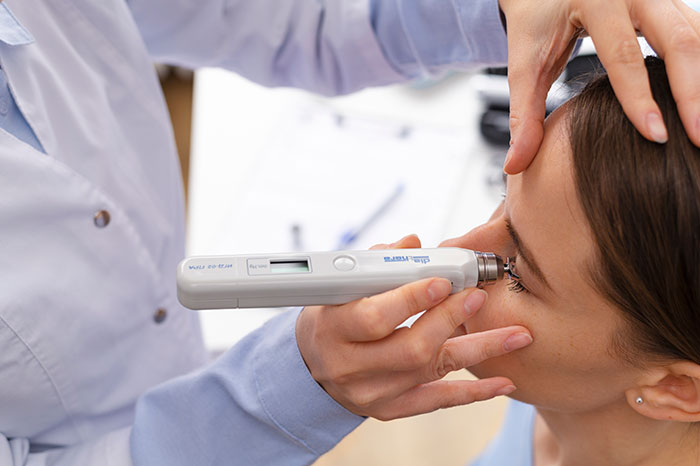
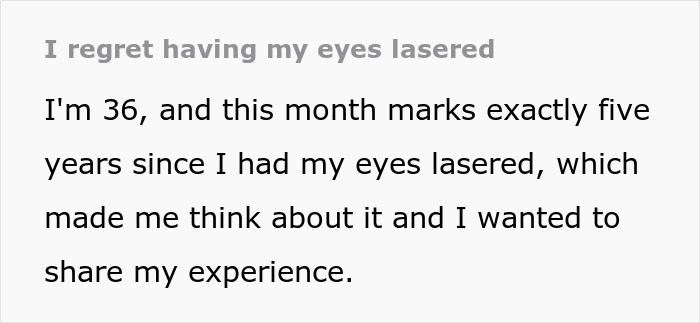
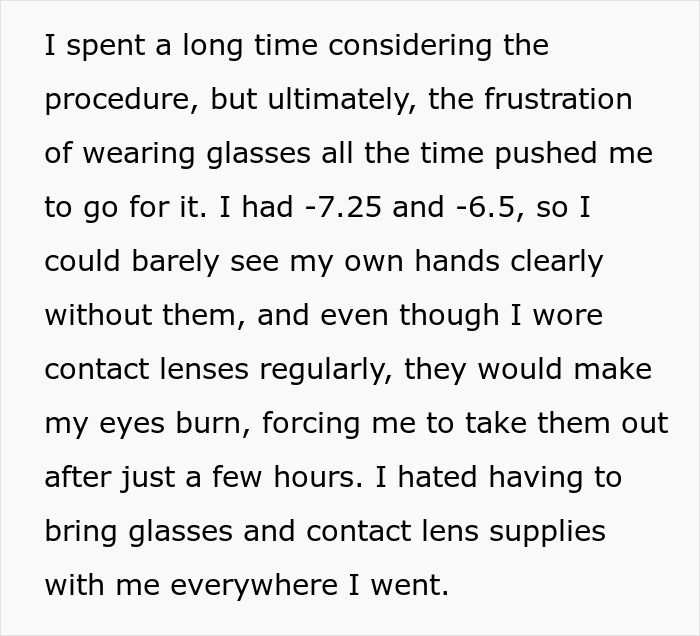
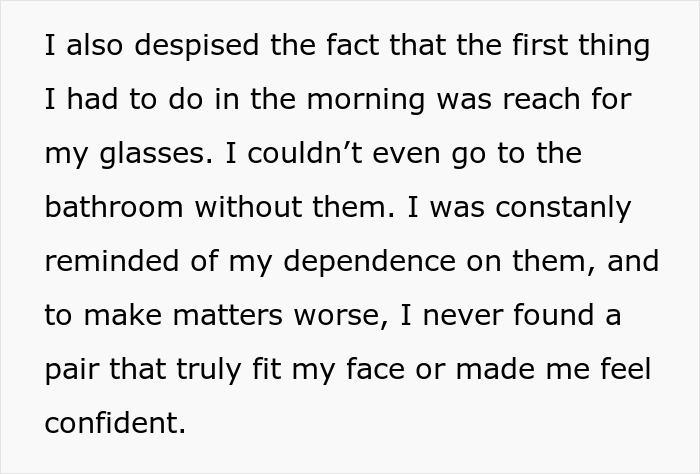
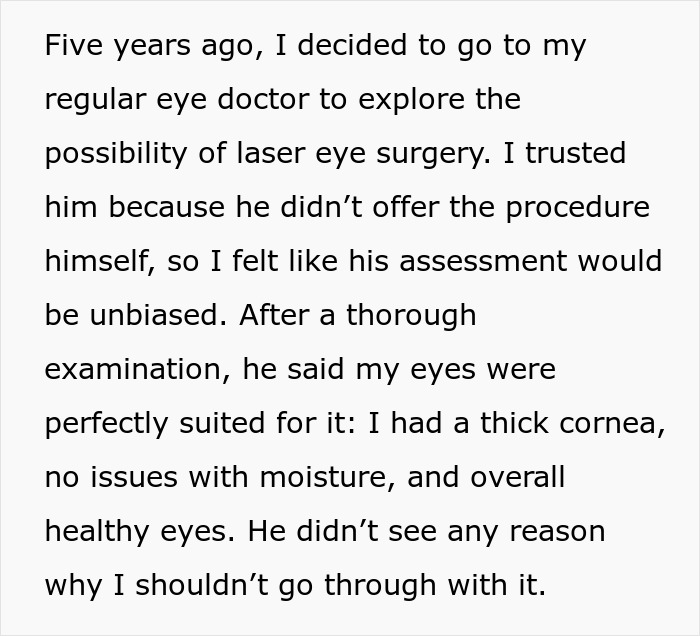
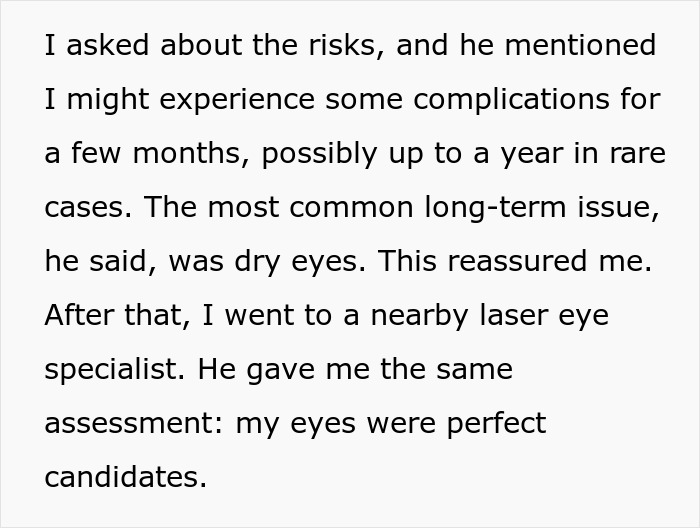
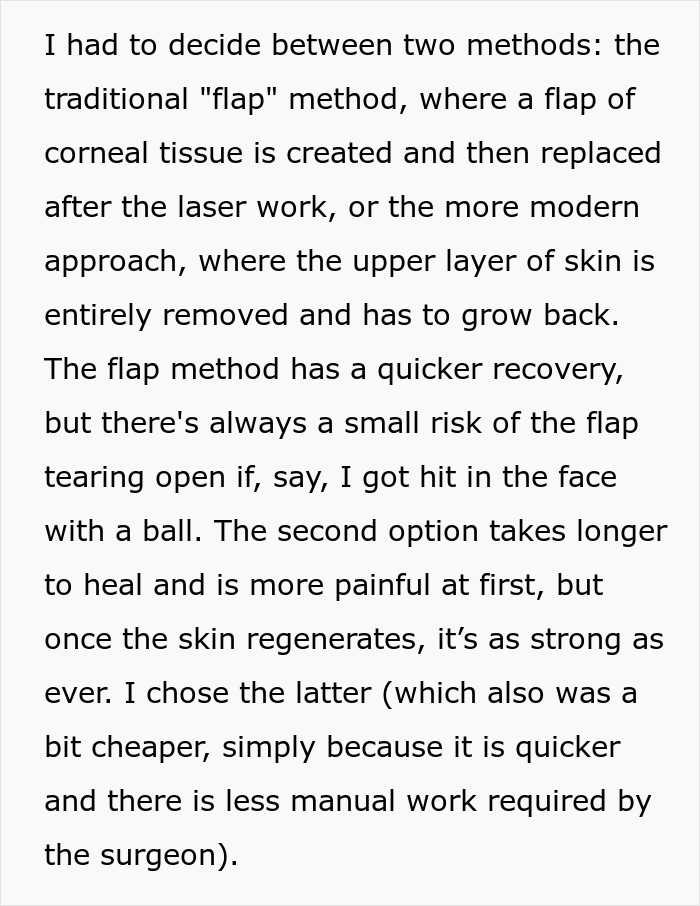

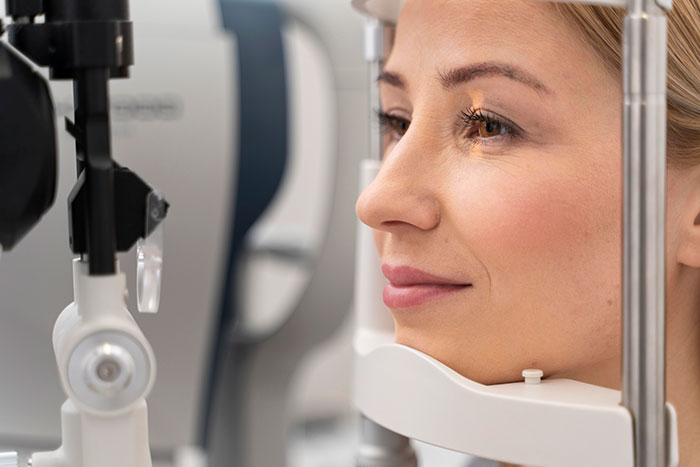
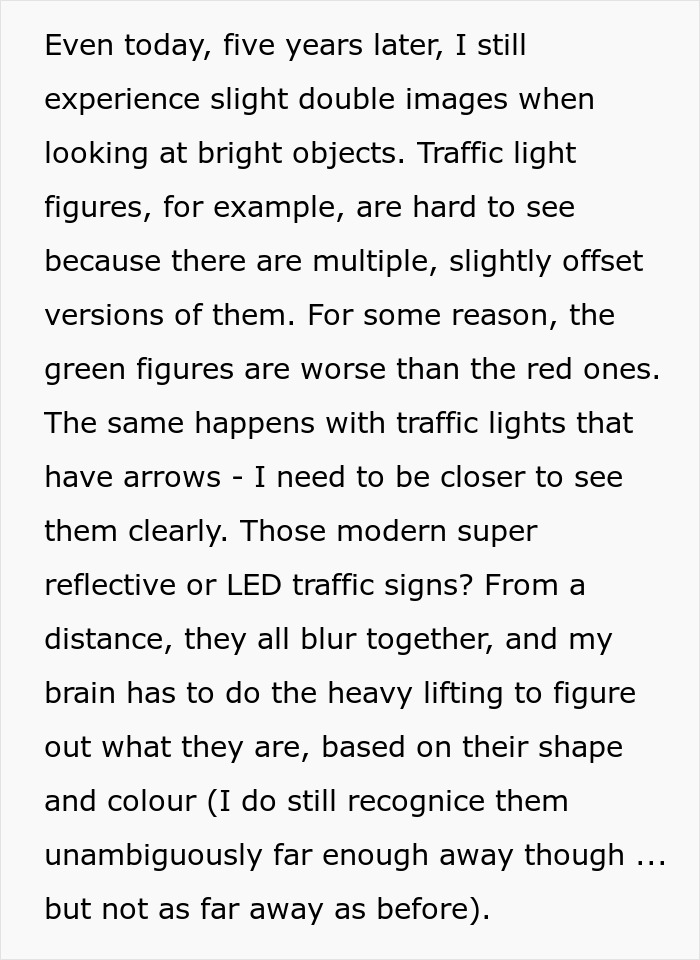
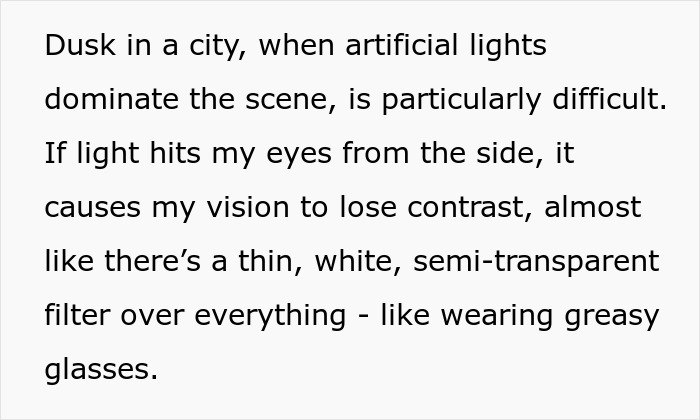
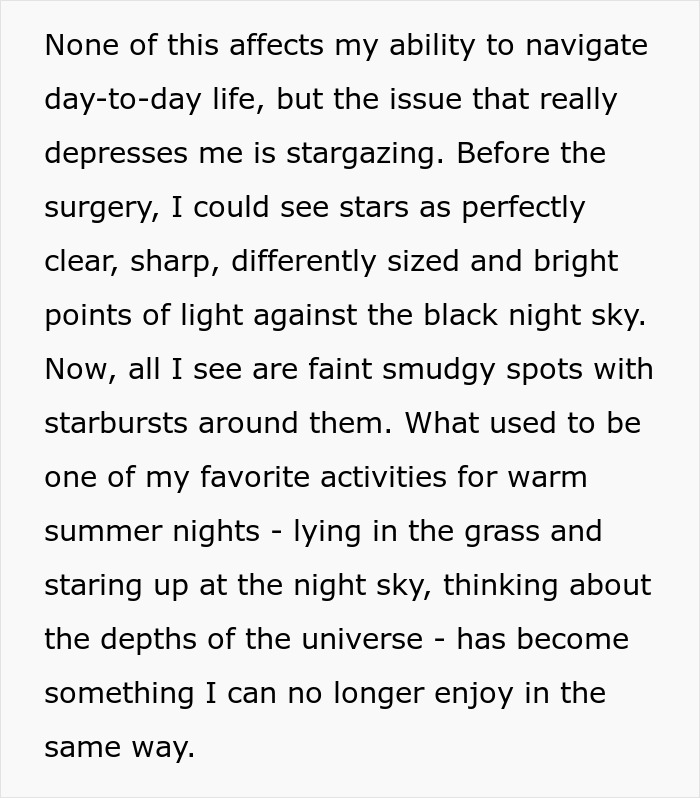
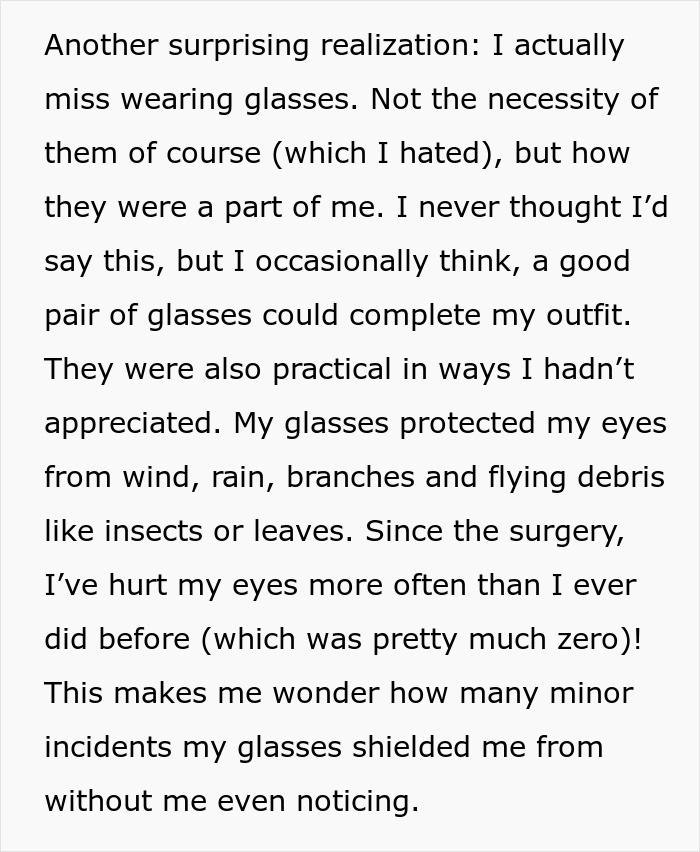
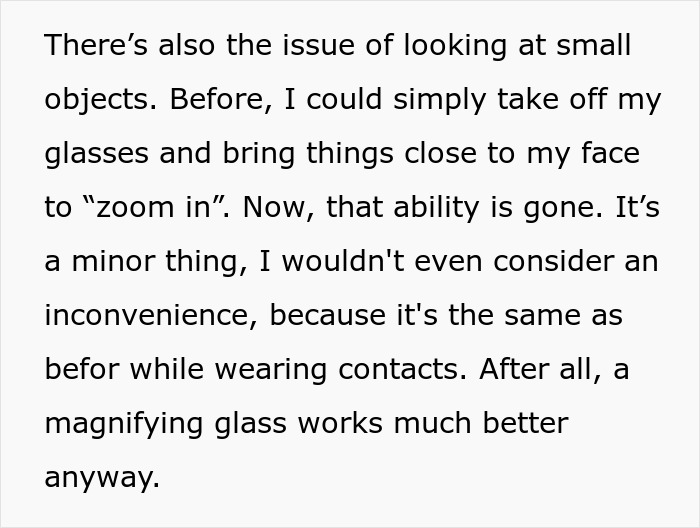
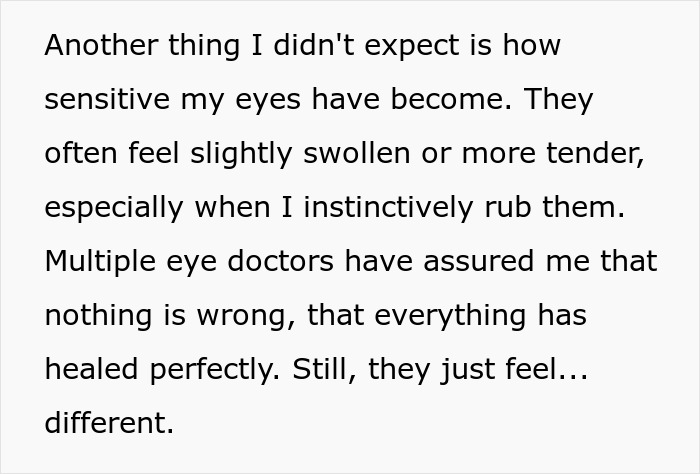

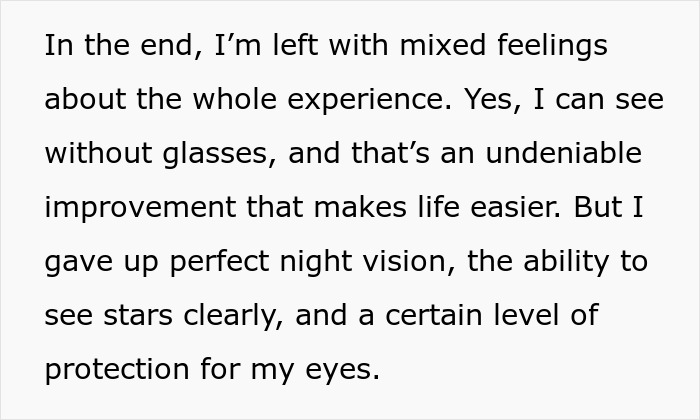
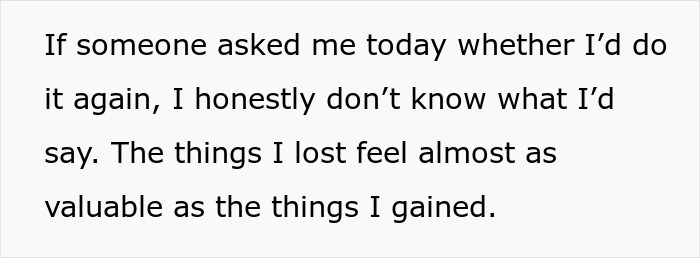
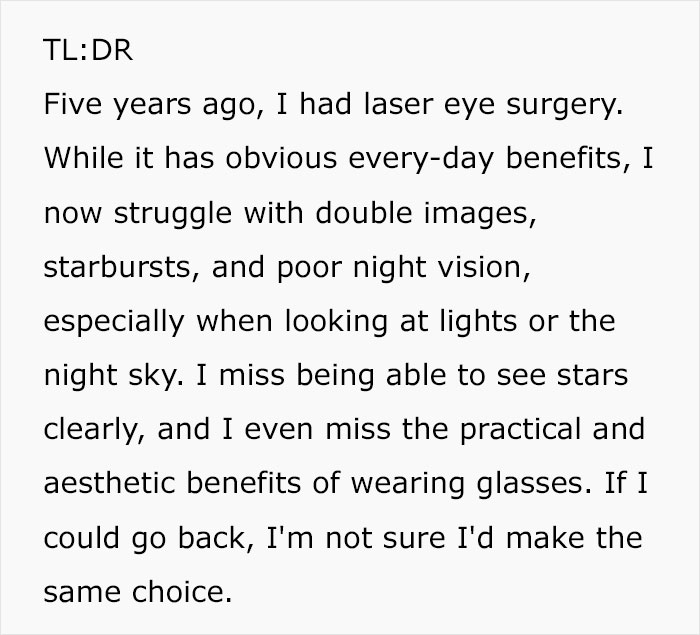
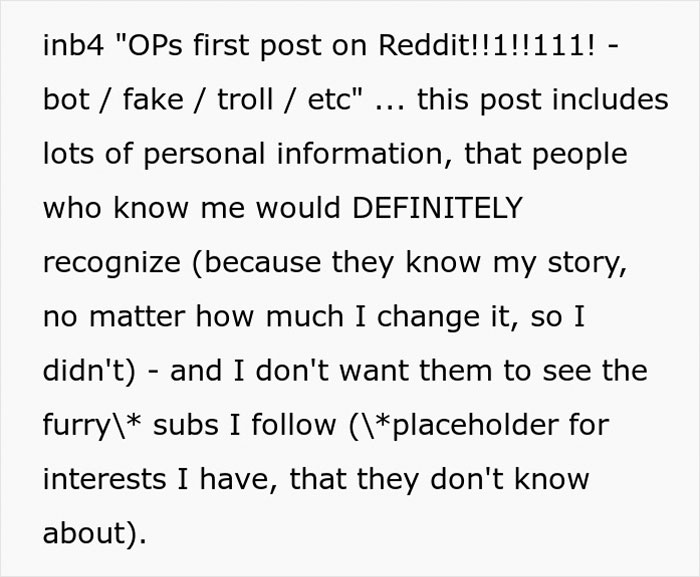
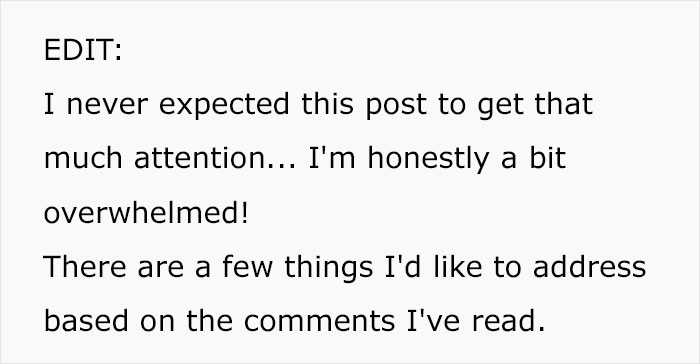
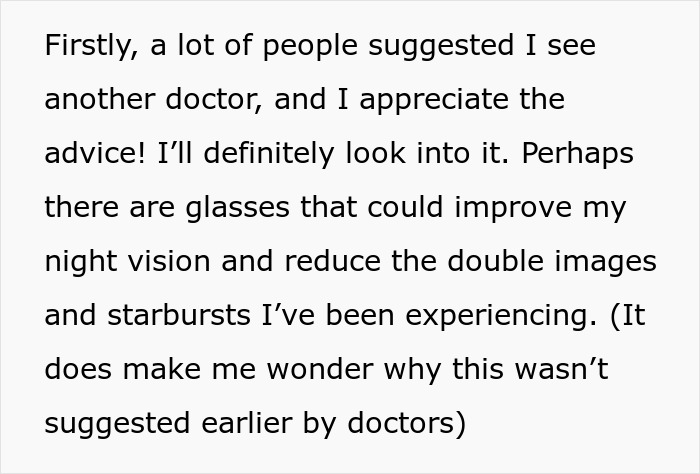
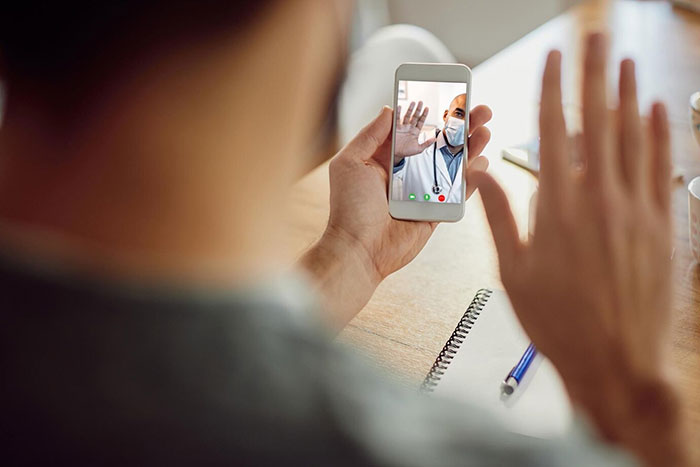
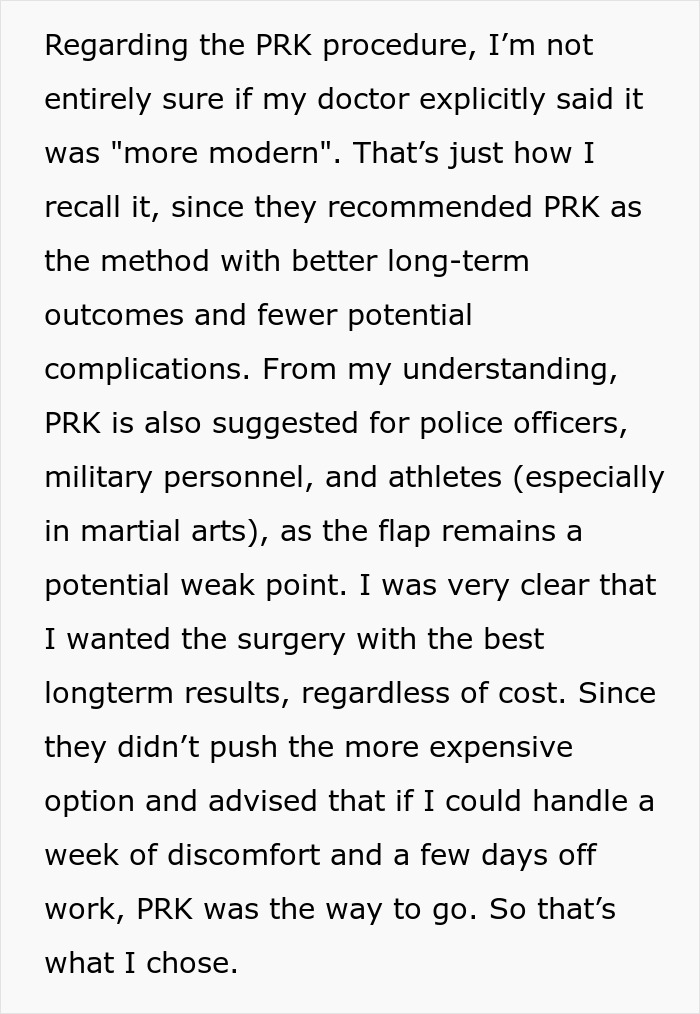
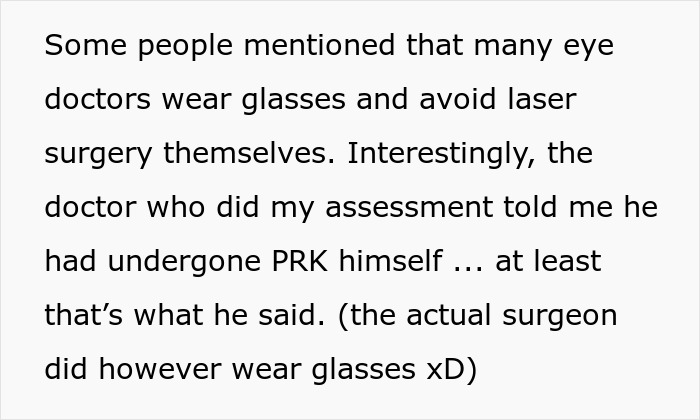

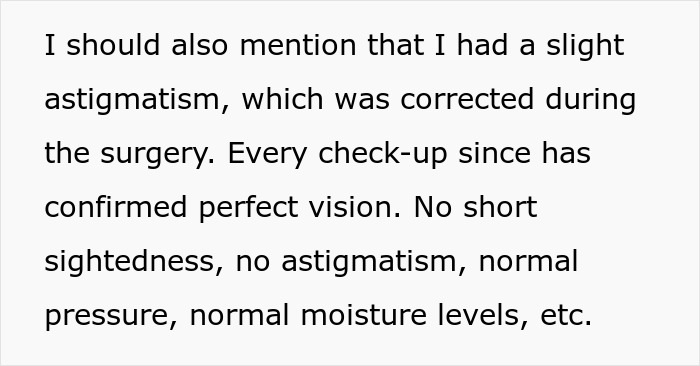
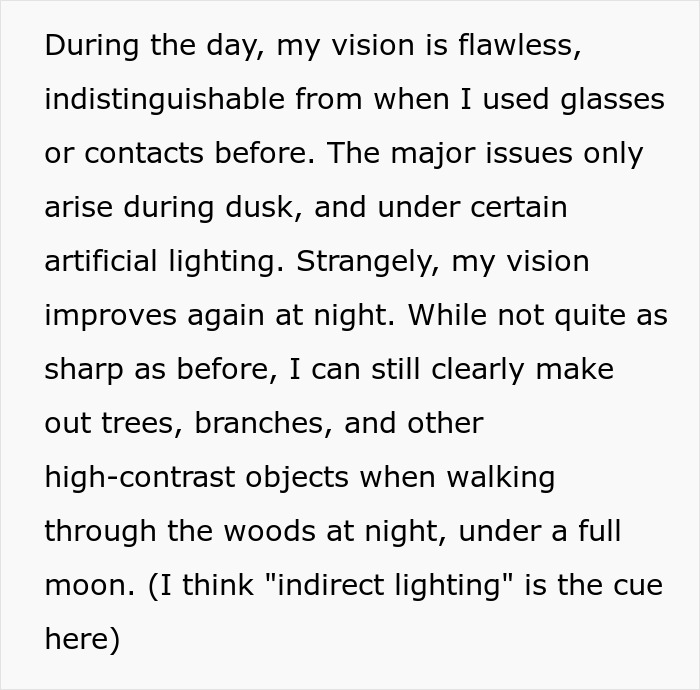
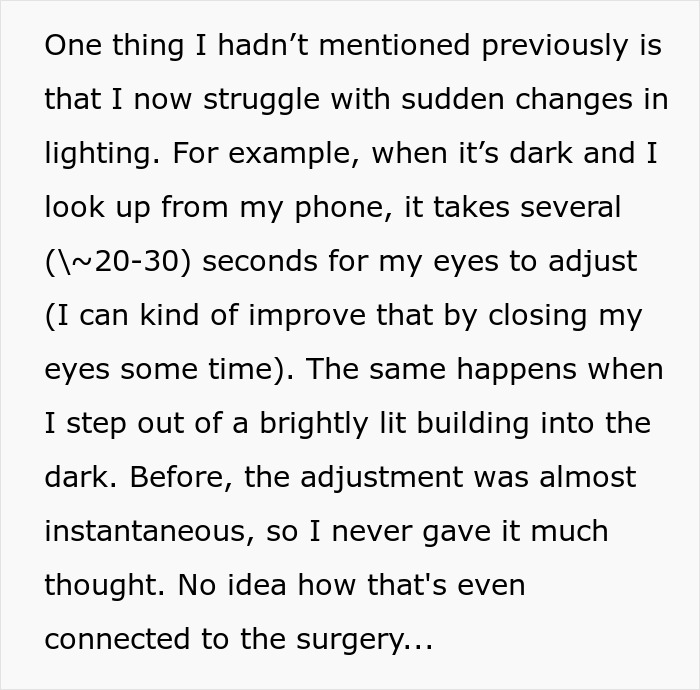
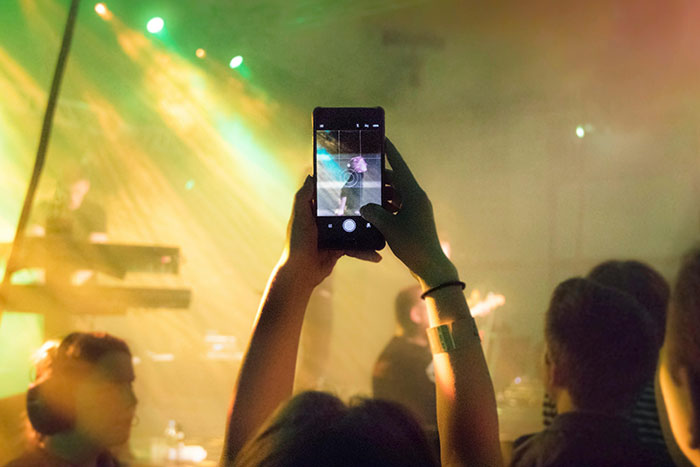
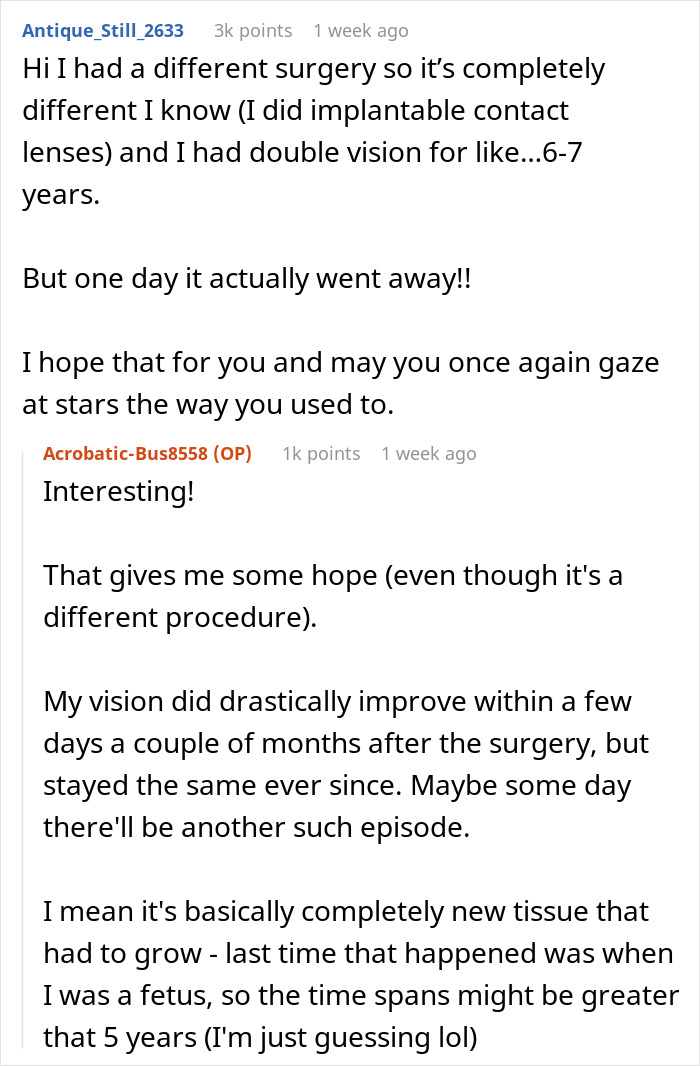
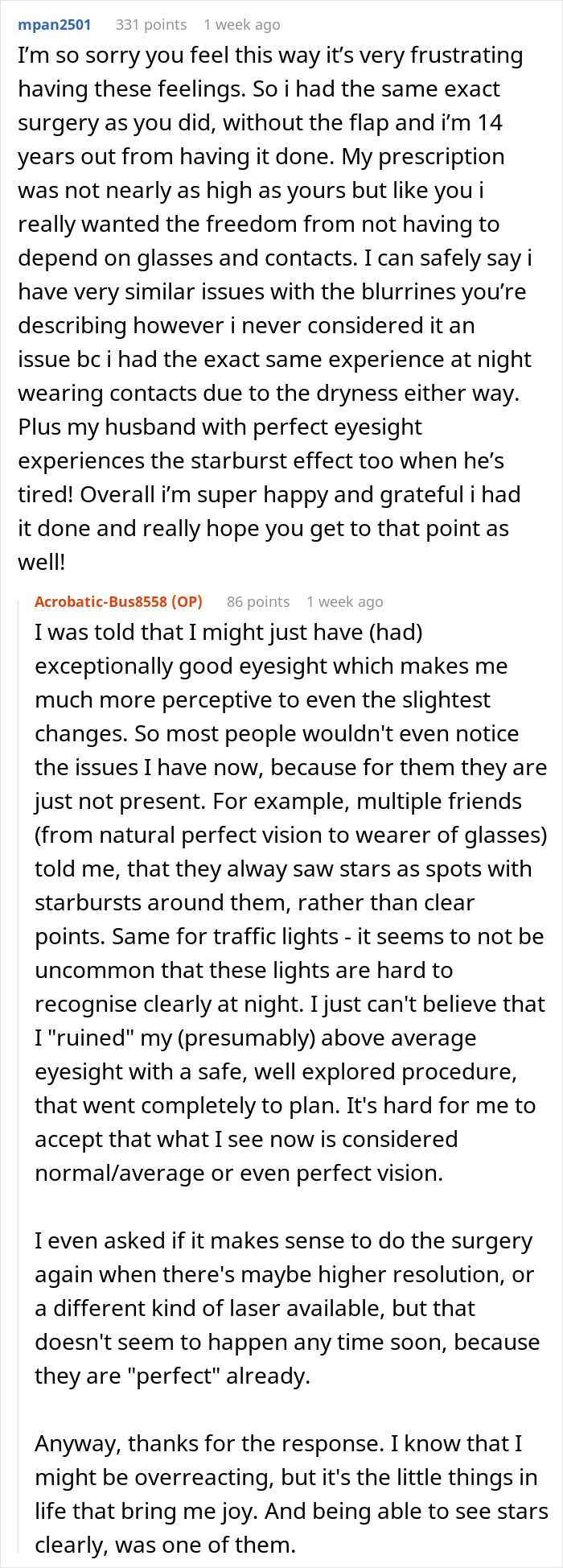

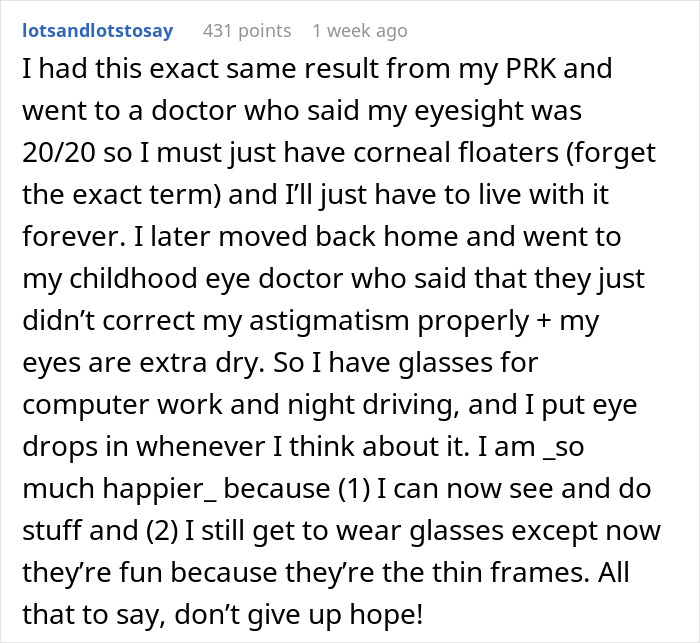
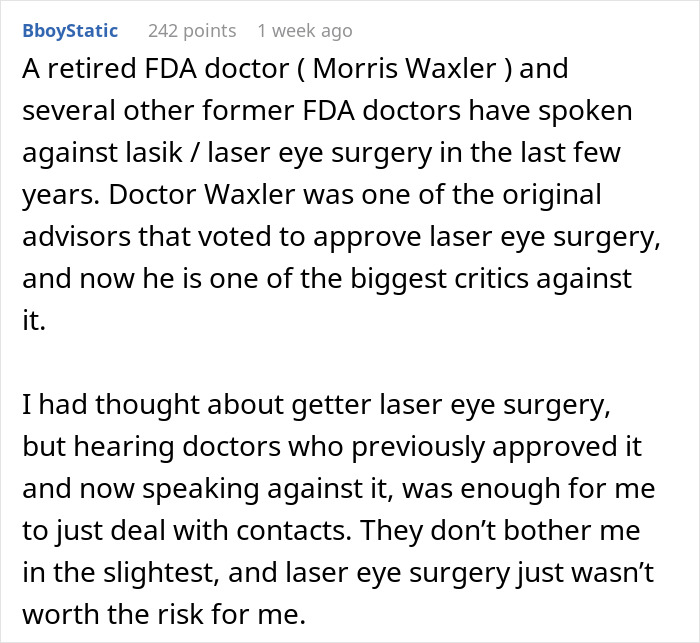
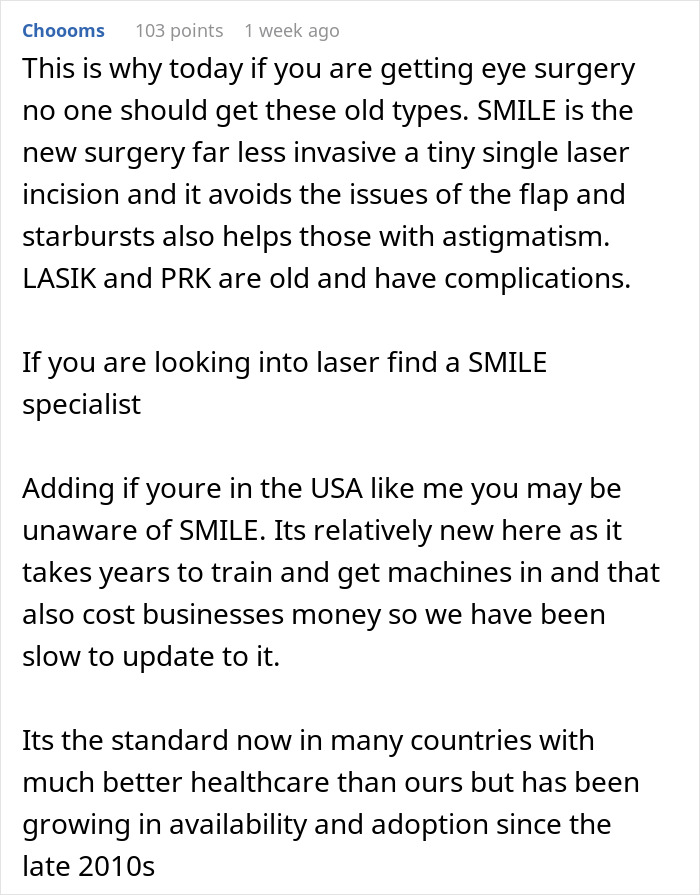


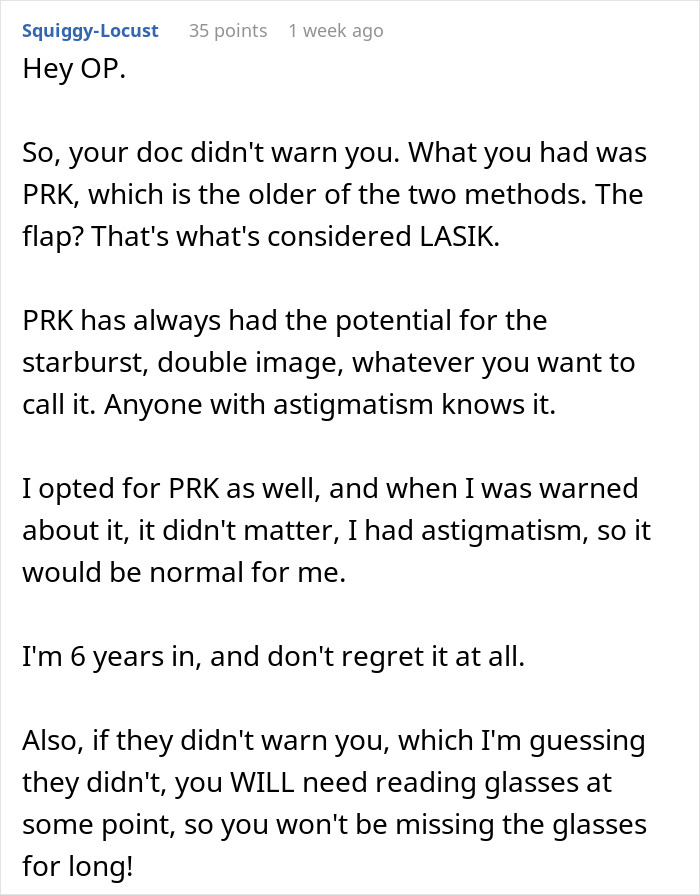
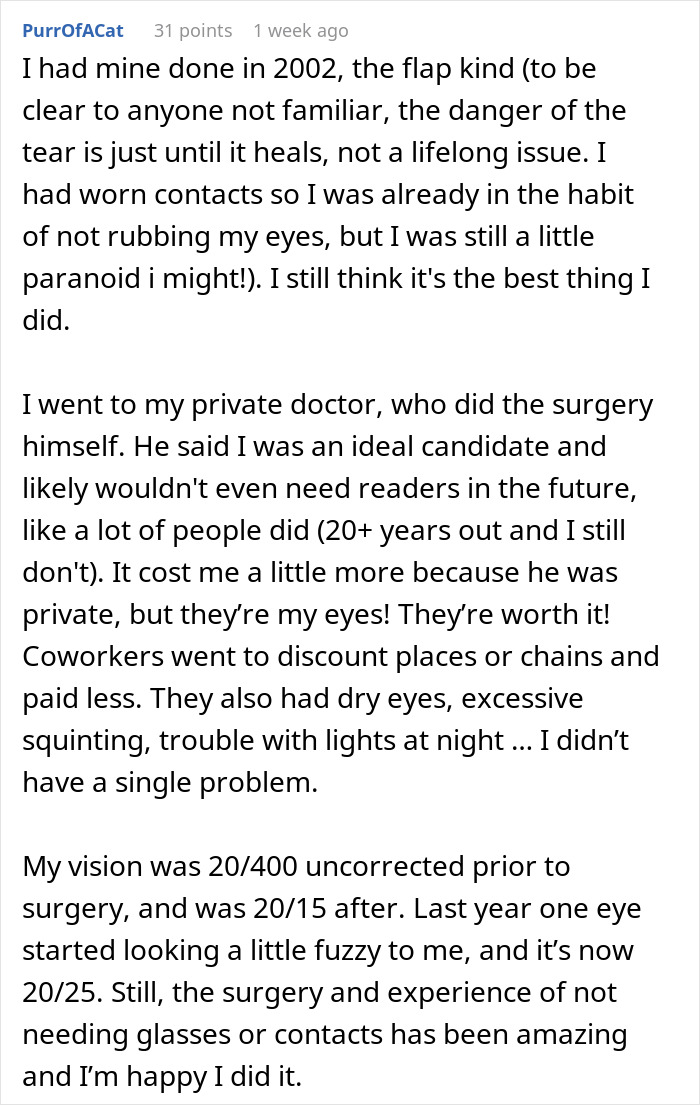

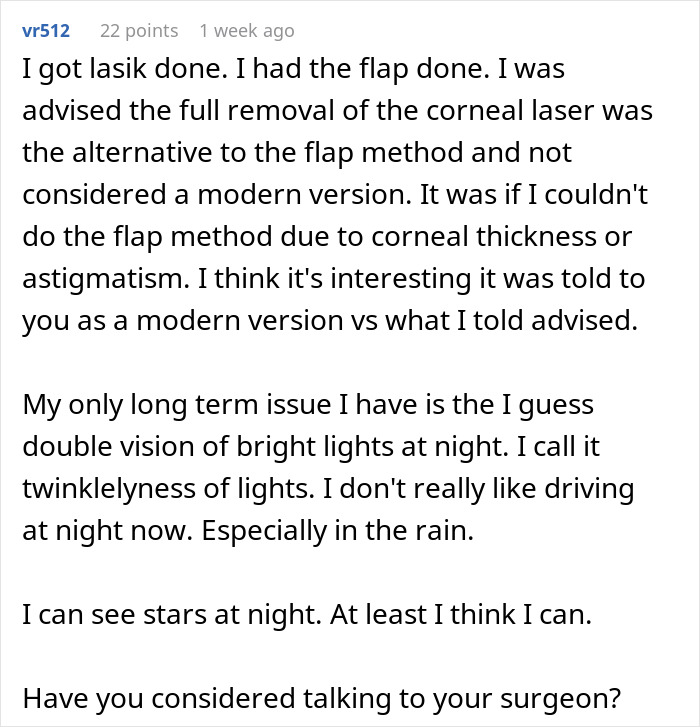


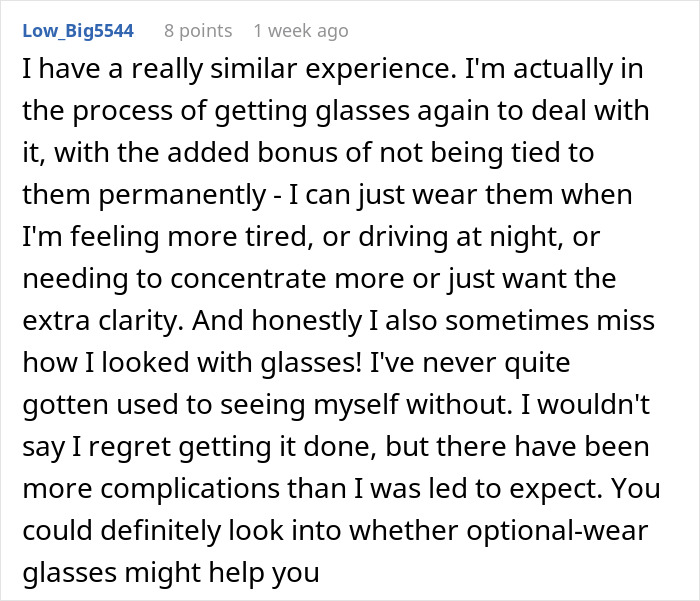











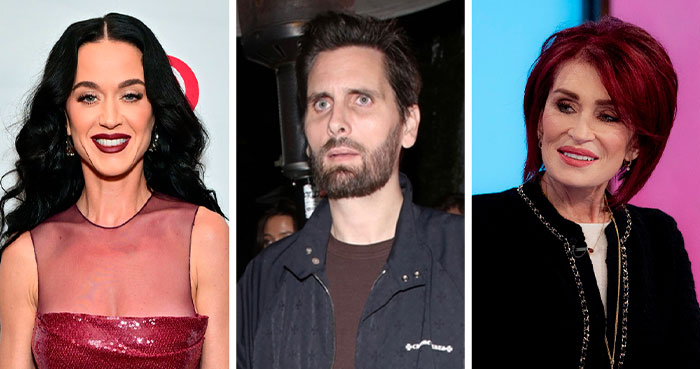
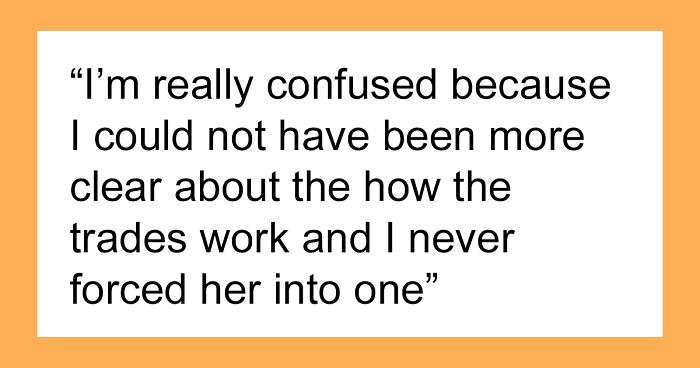


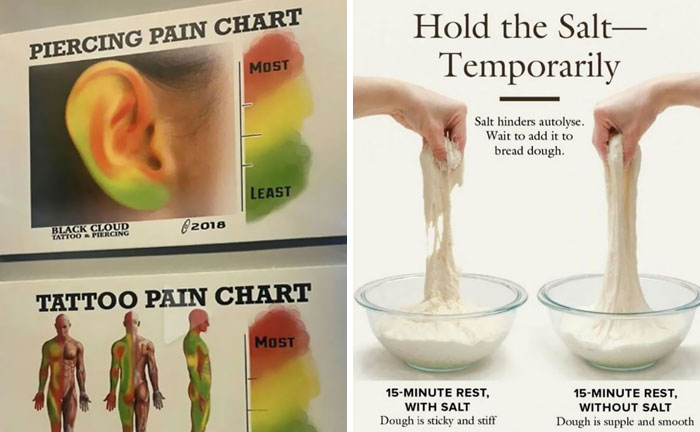
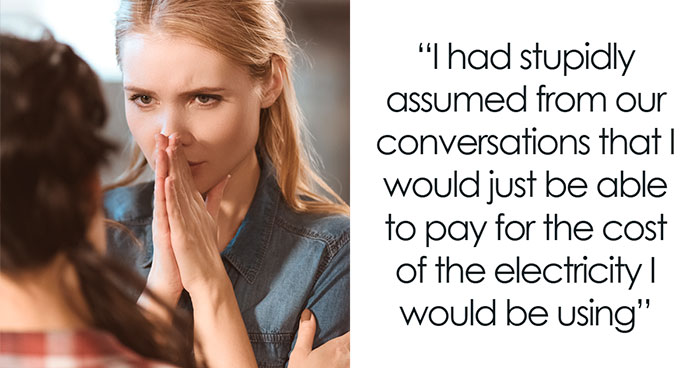


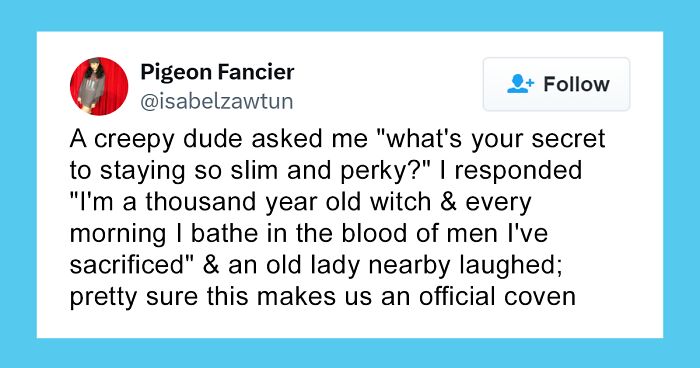
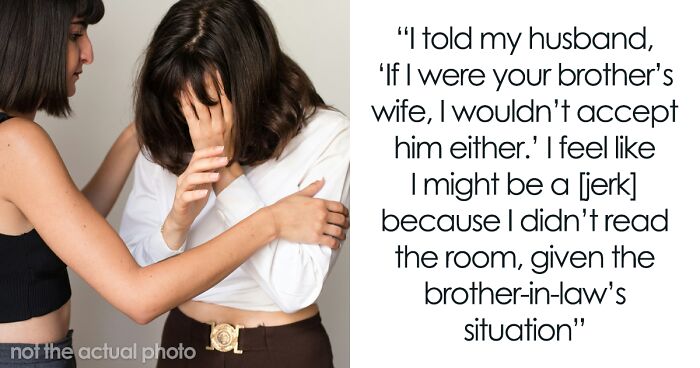
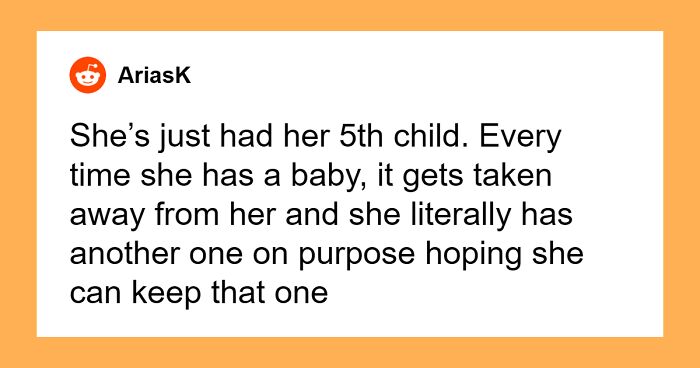
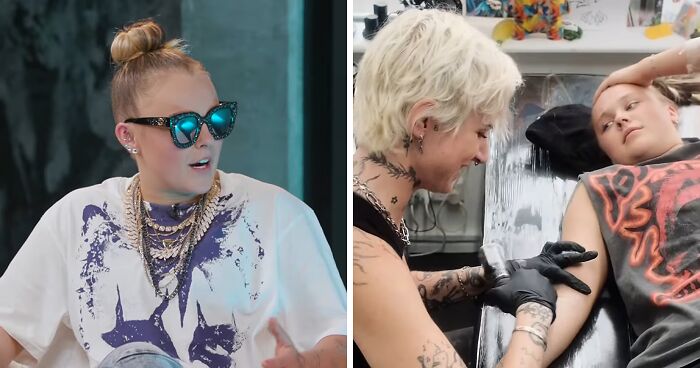



24
24